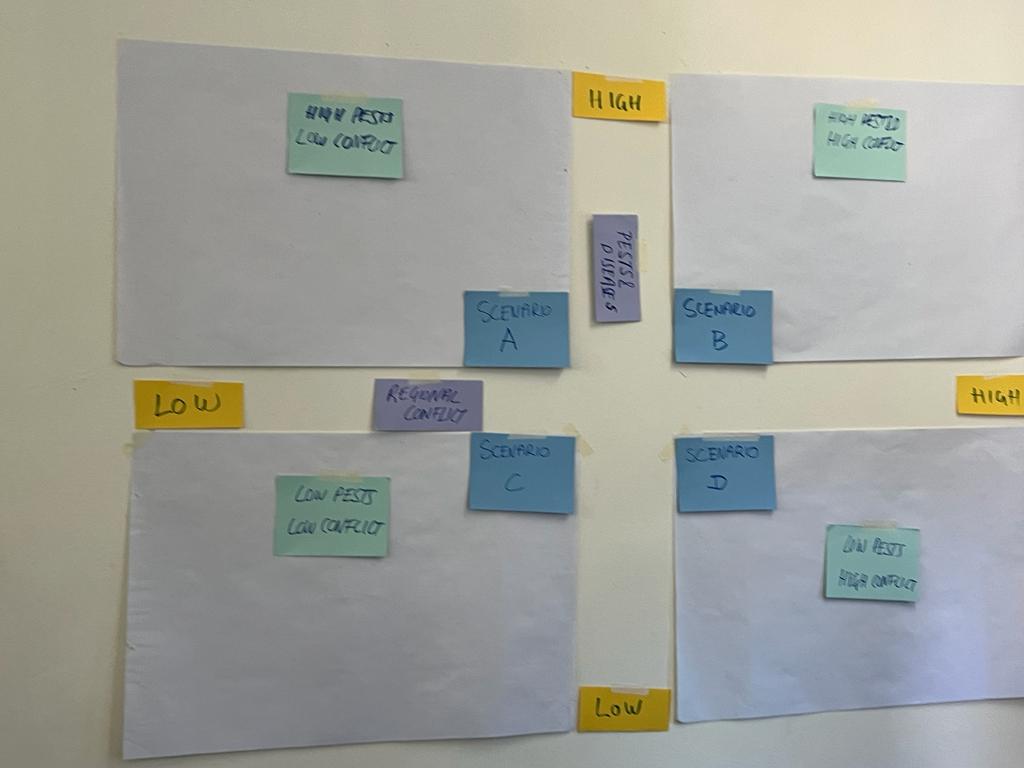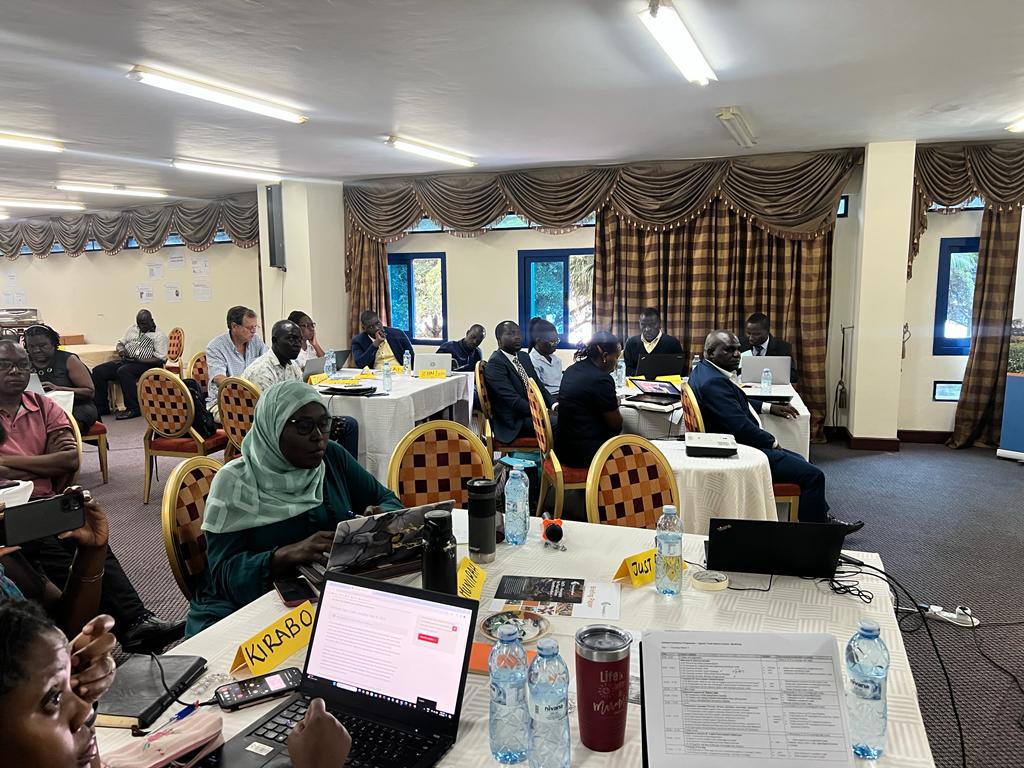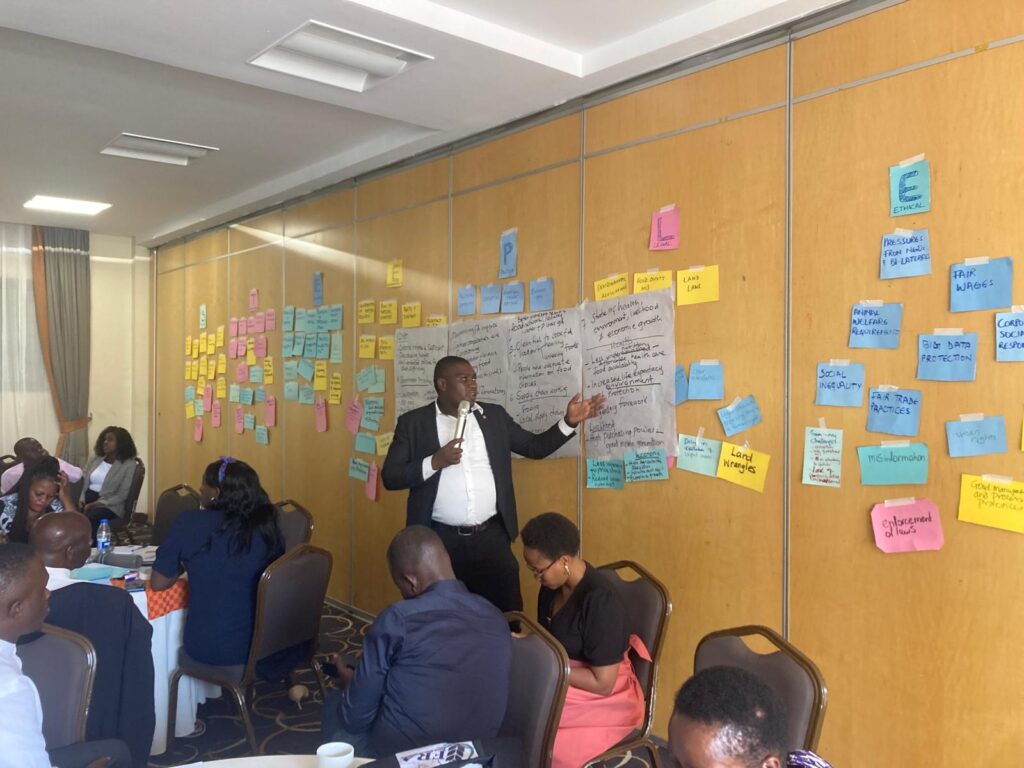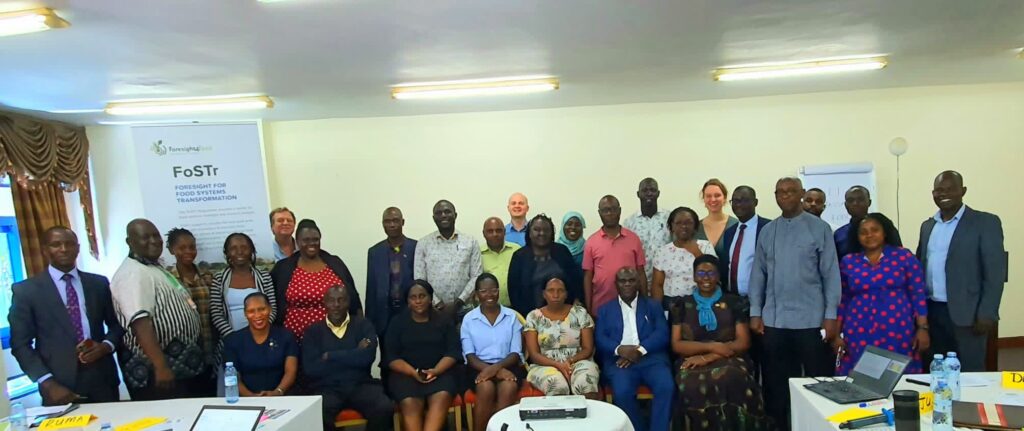Kampala, Uganda — From October 28 to 31, 2024, the Foresight4Food FoSTr (Foresight for Food System Transformation) programme conducted a pivotal in-country visit to Uganda, engaging key stakeholders in discussions about sustainable food systems. The visit, held in Entebbe and Kampala, involved collaborative efforts with various Ugandan ministries, organizations, and international experts to advance Uganda’s food system agenda.
Key Focus Areas and Events
During the visit, FoSTr team members met with representatives from the Ministry of Agriculture, Animal Industry, and Fisheries (MAAIF), the Ministry of Health (MoH), and the Ministry of Water and Environment (MoE), as well as the Office of the Prime Minister (OPM) and the National Planning Authority (NPA). Discussions centred on policy briefs addressing:
- Identifying future opportunities for preventing obesity, and non-communicable diseases (NCDs).
- Climate resilience strategies.
- Food loss and waste reduction.
FoSTr also hosted two thematic events joined by a multitude of food system stakeholders:
Agribusiness Futures Event: Approximately 25 stakeholders in Uganda’s fruit and vegetable sector discussed food loss and waste (FLW) challenges, identifying business-level opportunities for sustainable practices. Participants identified opportunities to address FLW within their businesses and across the country.
Diet Scenario Expert Meeting: Around 30 nutrition experts explored dietary scenarios for addressing obesity and NCDs through foresight, highlighting the environmental, economic, and social impacts of dietary shifts. The session concluded with a discussion where participants explored opportunities for integrating foresight into their work and the Ugandan nutrition agenda.
Scenario Workshop: The visit culminated in a full-day scenario workshop on October 31, gathering 50 multi-sectoral participants to explore the uncertainties of governance and income inequality. The session held a brief introduction to foresight, a look into Uganda’s policy landscape, and the progress on the Ugandan Food System Agenda. In the workshop, through scenario-building exercises, participants analyzed potential futures for Uganda’s food system and their implications for stakeholders.



Outcomes and Next Steps
FoSTr introduced foresight methods to new Ugandan stakeholders, expanded its community, and gathered critical feedback on draft policy briefs. These insights will refine recommendations for Uganda’s forthcoming National Development Plan (NDPIV).
Looking ahead, FoSTr plans to:
- Publish finalized policy briefs.
- Collaborate with the NPA to integrate workshop outputs into NDPIV development.
- Host a final workshop in March 2025 to chart transformative pathways for Uganda’s food system.

FoSTr’s engagement reaffirms its commitment to empowering Uganda’s ministries and stakeholders with forward-looking tools to build a resilient, sustainable, and inclusive food system.